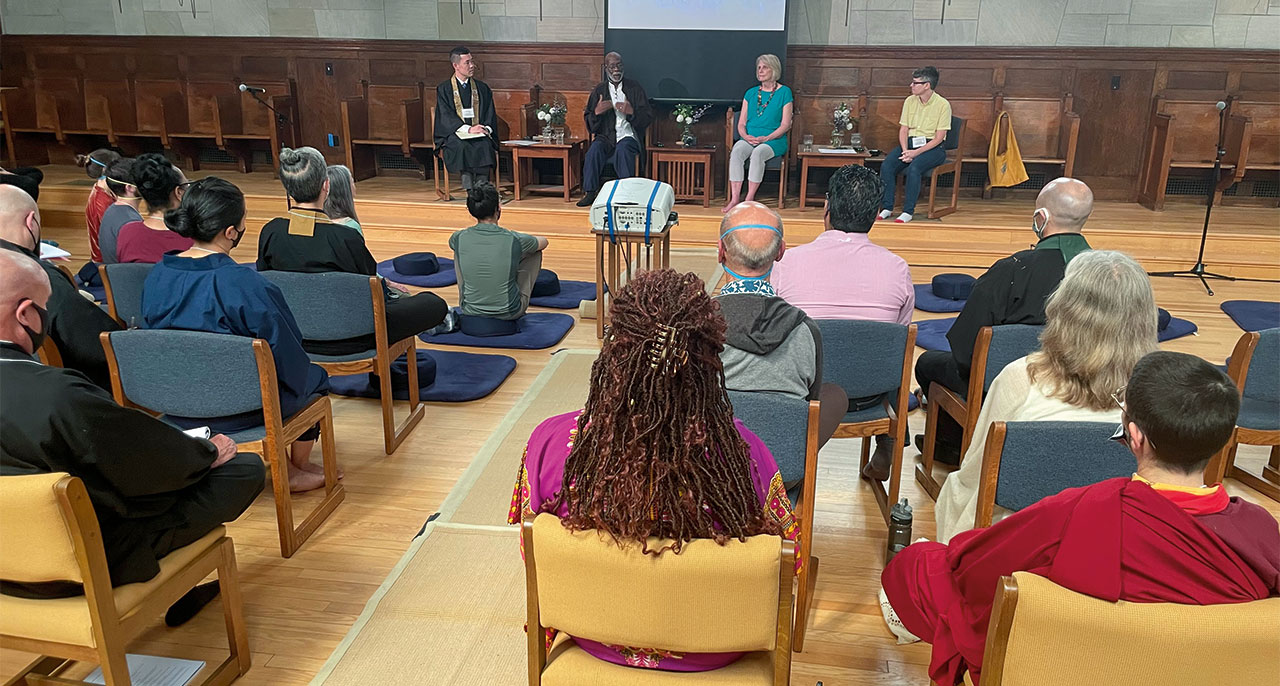One of the most refreshing Buddhist events I’ve attended was the Future of American Buddhism Conference in June, organized by The Frederick P. Lenz Foundation and Naropa University and held at the Garrison Institute outside New York. One of the panels (moderated by Lion’s Roar’s Andrea Miller) was specifically on the topic of Engaged Buddhism, but the event itself was an experience in Engaged Buddhism. It was what Catholics call communitas—a gathering of equals committed to building and maintaining community.
The idea of sangha giving rise to the next buddha is one of the most powerfully animating ideas in Buddhism today.
Reflecting on this brings to mind something Thich Nhat Hanh said: that the next buddha may be sangha. As I see it, shifting the focus from the enlightenment of one particular individual to the enlightenment of a collective of practitioners is where Buddhism in America is heading, and this conference artfully modeled that shift by de-centering Buddhist celebrities. But if we really want to continue cultivating our wisdom and rise to the level of collective buddhahood, I believe we will need to improve our resilience in the context of relationships.
Life is full of many existential threats—discrimination, homophobia, sexism, racism, and other forms of othering and oppression—and these can undermine our ability to be in healthy relationships. Fortunately, Buddhist practices like mindfulness and loving-kindness and the wisdom of interdependence support our ability to be resilient in relationships, even when facing discrimination and oppression.
The idea of sangha giving rise to the next buddha is one of the most powerfully animating ideas in Buddhism today. I have felt the truth of this potentiality not only at the Future of American Buddhism Conference, but also at other events I’ve been fortunate enough to participate in, such as The Awake Network’s 2022 Compassion in Therapy Summit.
There I talked with Resmaa Menakem, author of The Quaking of America; Deran Young, editor of Black Therapists Rock; Richard Schwartz, author of No Bad Parts; and Roshi Joan Halifax, author of Standing at the Edge. Their offerings help us understand that the third noble truth—that freedom from suffering is possible—needs some significant unpacking because the causes of suffering are complex and the paths to healing are many. This unpacking is done, in part, through sangha, and because sangha is also complex, healing through collective wisdom can manifest in many ways.
When I think about the future of Buddhism in the U.S., the first feeling that comes to me is love. I imagine a future for what I love. I love people. I love how Buddhism has taught me remarkable resilience through mindfulness, loving-kindness meditation, interbeing, and sangha participation. De-centering, deconstructing, de-colonizing, and post-modern forms of analysis and critique are certainly excellent modes of understanding and knowing. But after all concepts have been torn apart, shouldn’t we re-center love, the timeless metta of parent to child that is available for all beings in all realms?
Love is the core ingredient of remarkable resilience, and we can experience its buddha-essence by way of mature sangha, communitas. It is the way sangha becomes buddha.

